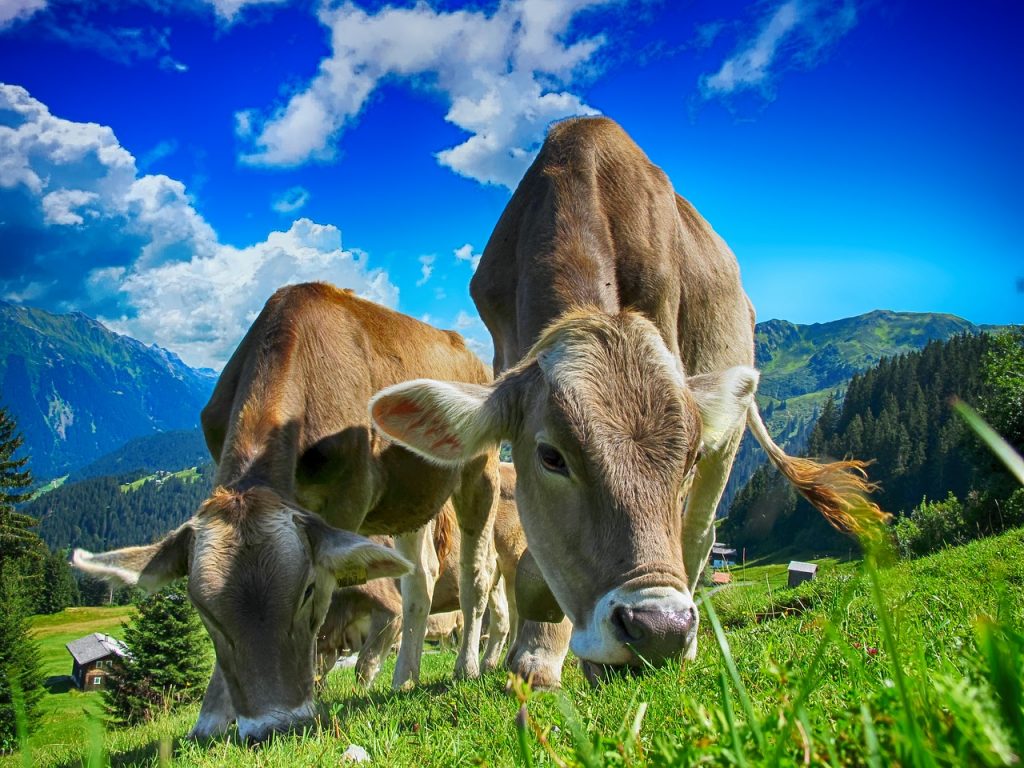The Very Weird Tax Being Imposed On Cows And Sheep
Individuals are subject to all kinds of taxes nowadays, however, nothing quite tops this very weird cow and sheep tax.
This article is more than 2 years old

Industries across the world are trying to curb their carbon emissions. From installing solar panels to constructing wind farms, businesses are doing everything they can to reduce fossil fuel usage and stop climate change. One country is attempting something different; a new cow and sheep tax will soon be imposed in New Zealand to help cut carbon emissions in the atmosphere.
Scientists have agreed that livestock emits many greenhouse gasses into the air. In fact, cows are solely responsible for 40% of methane emissions worldwide, making them a significant target for new environmentally conscious procedures. Based on what a cow consumes daily, the more concerning its burps are to the general atmosphere. Certain scientists have the ability and expertise to examine a cow’s diet to see exactly how much methane it expels into the air. The answer: cows’ standard diets produce tons of methane in the animal’s stomach, which is then released into the air. Alongside the new tax in New Zealand, scientists are coming together to reconstruct cattle diets to be more environmentally friendly.
New Zealand is the first country to attempt a cow and sheep tax, likely because of the country’s enormous amount of domestic livestock. There are seven times more cows and sheep in the island country than people, which is a massive amount of methane emissions. This past week, the New Zealand government released a plan to implement the tax by 2025. Once enacted, farmers would have to pay for their livestock’s emissions. The proposal was formed by the government and the private sector, collaborating on an environmentally-helpful approach to cows’ excessive methane release.
Taxing farmers for their needed livestock isn’t the most universally lauded approach. In the past, attempts to tax farmers haven’t gone over so well in New Zealand. But the country’s climate change minister, James Shaw, thinks that imposing a cow and sheep tax would reduce the country’s general greenhouse gas emissions. Shaw stated that a “pricing system for agriculture” is beneficial to slow down climate change. However, it financially targets farmers who are already suffering from skyrocketing fuel, labor, and grain costs. Still, the government is planning to move forward with the tax in an attempt to curtail methane emissions.
The cow and sheep tax plan will likely be disclosed at the end of the year. Shaw believes that once implemented, greenhouse gas emissions in New Zealand will vastly reduce over the next ten years. Since no tax has been utilized before to curb methane release, there isn’t a definite outcome for the country’s cattle proposal. Shaw backed up his tax proposition, stating that results would form reasonably quickly once the tax is officially enacted.
Farmers with different amounts of cattle would be priced differently under the proposed cow and sheep tax. Farm animals with different life expectancies would be taxed at varying rates. Though many believe the tax won’t have any adverse effects on the country, some citizens worry that it would escalate meat prices in New Zealand. Cutting back on cattle could heighten demand for beef, which is an outcome both the governmental and private sectors haven’t addressed yet. For now, the cattle tax is still a suggestion, with the possibility of a legitimized plan by the end of 2022.





